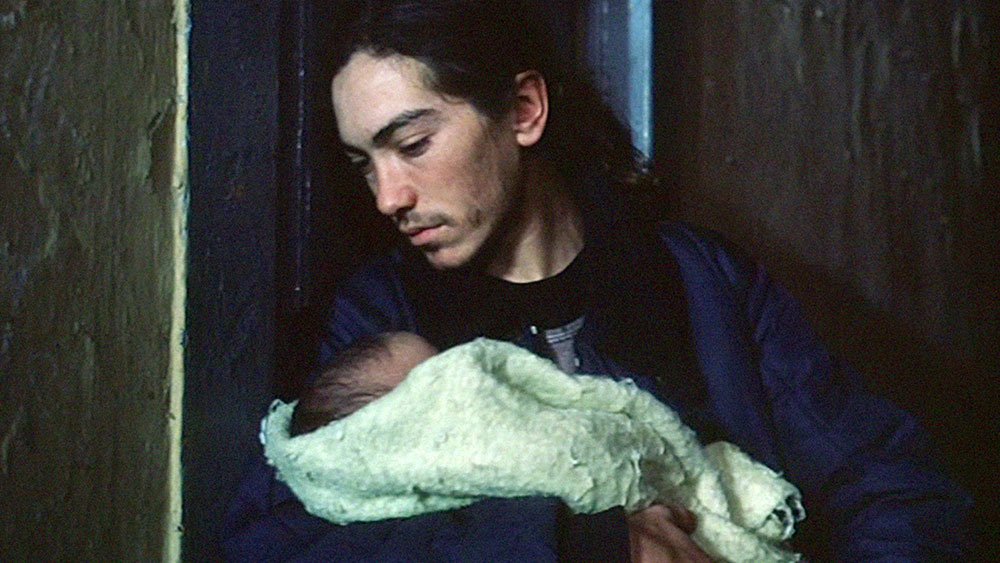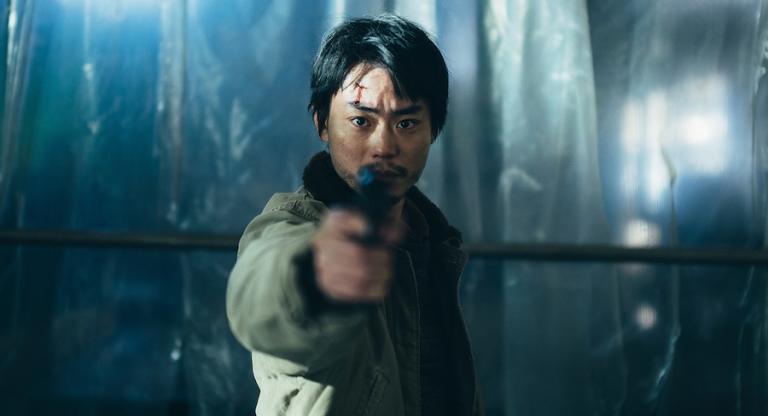Interviewed for the Criterion Channel about Pedro Costa’s Ossos (which won best cinematography at Venice ‘97), the cinematographer Emmanuel Machuel remembers fighting with the “extremely cramped” locations the crew had to shoot in. Ossos was filmed in a then-dilapidated and now-deserted corner of Lisbon, and it’s true that the film’s spatial tightness is one of its more prominent and oppressive features. Supposed exteriors play like interiors: we rarely see the sky, and, memorably, there are several high-angle shots of residential alleys which feel completely enclosed, like narrow blood vessels, their traversers suffocating in their knotted confines.
Ossos is a film about suffocation. Tina (Mariya Lipkina), a dour young woman living in a miserable slum, has just had a baby. She is broke and suicidal, and immediately tries to gas herself and the child. But her double suicide is foiled by the arrival of the kid’s deadbeat father, who promptly takes over parenting duties. He carries the baby to town in a trash bag, where he begs, drinks, and eventually lands in the hospital. There he meets Eduarda, a middle-class nurse who inserts herself into the lives of the destitute parents and their equally down-and-out associate Clotilde. Tina and Clotilde run up Eduarda’s gas bill with subsequent death-by-oven attempts in her apartment, and the enterprising father does his best to offload the baby, even trying to sell him to a prostitute. Costa’s characters, like his settings, are both cramped and astoundingly expressive. This is especially true of the father. His voice is soft and high, his eyes are feral—alternately vulnerable and carnivorous—and his suffering is so wordless that one becomes magnetically attuned to his face, searching for clues in his microexpressions. When he smiles at his son (just once by my count), it’s a silent monologue.
The film is unrelentingly bleak and its rare moments of kindness are rendered sinister by the story’s ambiguity. Why does Eduarda, comparatively well-to-do, take such an interest in these tragic youths? Who are the strange girls with prominent eyebrows who hover around the shanty town? They’re observers, like us, but they’re afflicted with some secret knowledge about this place. “The evil eye is upon you,” says one of them to Tina. “You must pass it on to me.” These mysteries are a product of Costa’s remarkable vérité approach. There’s a sense that Ossos is a highly contained documentary—a segment taken from lives and problems that don’t begin or end with the film.
Ossos screens tomorrow night, March 29, at Metrograph as part of the series “Savanah Leaf Selects.”



